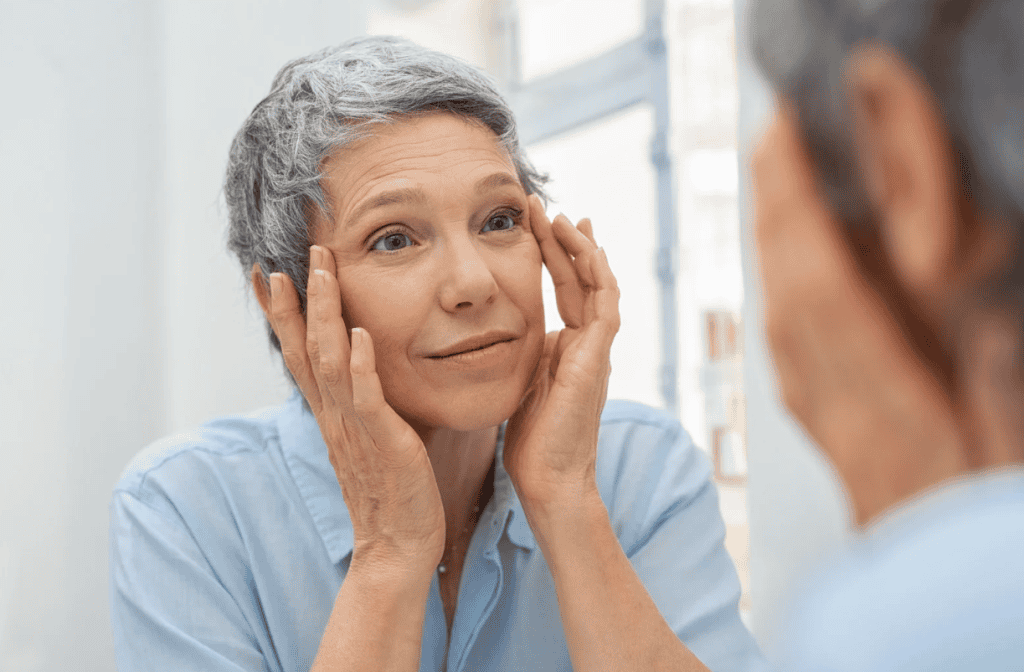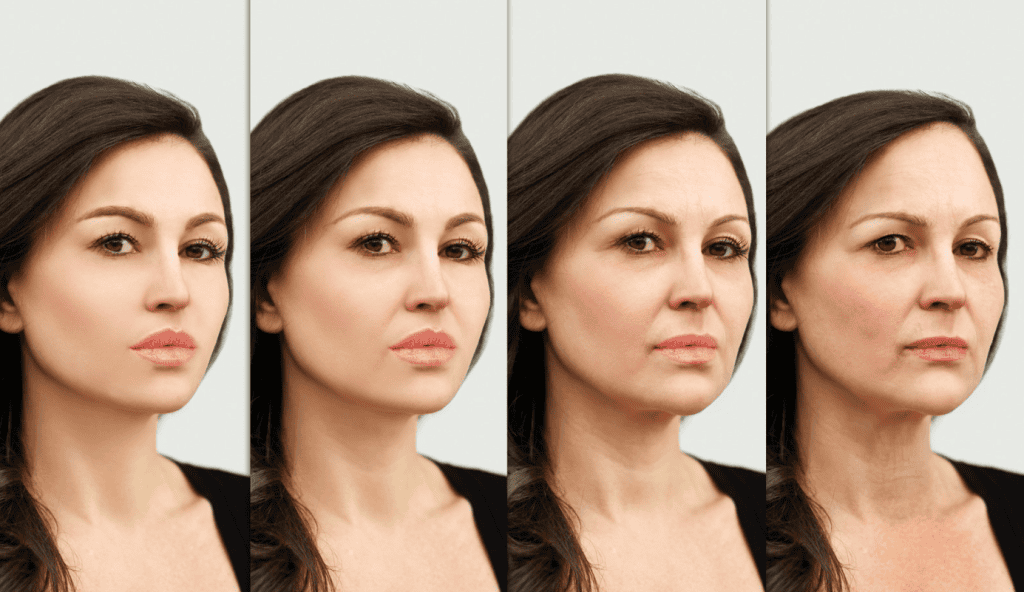The quest for youth is as old as humanity itself. From ancient elixirs to modern-day supplements, the desire to reverse the effects of aging has driven countless innovations. But is it truly possible to reverse your age by 20 years naturally, or is this just another myth?
Let’s explore what the science says on the ways to reverse aging naturally, along with some natural methods that people claim can help turn back the clock.
The Science of Aging
Aging is a complex biological process influenced by genetics, lifestyle, and environmental factors. While we cannot completely halt aging, scientific advances suggest we may be able to slow it down and, in some cases, even reverse certain aspects. The idea of reversing age naturally focuses on improving the body’s capacity to heal, regenerate, and maintain optimal function as we grow older.
Cells, the basic building blocks of our body, naturally accumulate damage over time. Oxidative stress, environmental toxins, and other factors contribute to this wear and tear. However, some studies suggest that the rate at which we age can be slowed—and in some cases, certain damage reversed—by addressing these factors through nutrition, exercise, and lifestyle changes.
For instance, recent research has shown that some natural compounds, like resveratrol found in red wine, may activate certain genes associated with longevity and anti-aging. While this is still an emerging field of research, early results are promising. More importantly, these findings point to a simple truth: the decisions we make every day can significantly affect how we age.

Natural Ways to Turn Back the Clock
While reversing aging entirely is not yet within our grasp, there are numerous natural methods that claim to help people feel younger, more energetic, and even improve physical appearance. The key is adopting habits that promote cell repair, enhance metabolic functions, and reduce the factors that accelerate aging. Below, we’ll explore several strategies often recommended for those seeking to “reverse” their age naturally.
Nutrition and Cellular Health
One of the most significant ways we can impact the aging process is through what we eat. Food is not just fuel—it’s also medicine for our cells. Consuming a nutrient-dense diet is essential for promoting cellular repair and preventing age-related diseases. A few key dietary elements stand out when it comes to slowing the aging process:
- Antioxidants: These compounds help neutralize free radicals, which can cause oxidative damage to cells and accelerate aging. Foods rich in antioxidants, such as berries, dark leafy greens, and nuts, are critical in any anti-aging diet.
- Omega-3 Fatty Acids: Omega-3s, commonly found in fish, flaxseeds, and walnuts, are known for their anti-inflammatory properties. Chronic inflammation is a major contributor to aging, and omega-3s help combat this process.
- Vitamin C and E: Both vitamins are powerful antioxidants that promote skin health and protect against cellular damage. Vitamin C is found in citrus fruits, while vitamin E is abundant in almonds and sunflower seeds.
Moreover, emerging trends such as intermittent fasting are thought to promote longevity by triggering autophagy—a process where the body cleans out damaged cells and regenerates new ones. While fasting can be challenging, many people report feeling more energetic and mentally clear after incorporating fasting into their routine.
Exercise: The Ultimate Anti-Aging Tool
It’s often said that exercise is the closest thing we have to a fountain of youth, and science backs this up. Regular physical activity not only helps maintain a healthy weight but also combats many age-related conditions, including heart disease, diabetes, and osteoporosis. Here’s how different types of exercise can play a role in reversing the effects of aging:
- Strength Training: Building and maintaining muscle mass is crucial as we age, as it helps prevent the loss of bone density and muscle strength, two common problems in older adults. Strength training exercises like weight lifting and resistance bands stimulate muscle growth and improve metabolism.
- Cardiovascular Exercise: Aerobic activities like running, swimming, and cycling are essential for heart health. Cardiovascular exercise improves circulation, increases energy levels, and enhances endurance—all of which contribute to a more youthful body and mind.
- Flexibility and Balance: Practices like yoga and Pilates not only improve flexibility but also help with balance, which becomes increasingly important as we age. Staying flexible and balanced can prevent falls and injuries, keeping the body mobile and agile in later years.
Studies have shown that people who maintain an active lifestyle tend to live longer and enjoy better health overall. Regular exercise keeps muscles strong, joints flexible, and the brain sharp. In fact, some research even suggests that exercise can improve the function of mitochondria—the powerhouse of cells—which may slow aging at a cellular level.
Sleep: Nature’s Repair Mechanism
Good sleep is one of the most underrated tools in the fight against aging. During sleep, the body repairs damaged tissues, balances hormones, and removes toxins from the brain. Poor sleep quality accelerates aging, weakens the immune system, and contributes to cognitive decline. Here are a few tips for improving sleep quality to reverse signs of aging:
- Create a Relaxing Bedtime Routine: Establishing a routine that helps you unwind before bed—such as reading or taking a warm bath—signals to your body that it’s time to rest.
- Limit Screen Time: Exposure to blue light from phones and computers can interfere with your body’s natural sleep-wake cycle. Try to reduce screen time at least an hour before bed.
- Maintain a Consistent Schedule: Going to bed and waking up at the same time every day helps regulate your body’s internal clock, making it easier to fall asleep and wake up refreshed.
Getting seven to nine hours of quality sleep each night is essential for maintaining youthful energy levels and cognitive function.
Stress Reduction: The Fountain of Youth for Your Mind
Chronic stress takes a significant toll on both mental and physical health, speeding up the aging process. Stress increases the production of cortisol, a hormone that contributes to inflammation, weight gain, and cellular damage. Reducing stress through mindfulness techniques, such as meditation, yoga, and deep breathing, can have a profound impact on your well-being.
One popular approach is meditation, which has been shown to lower stress hormones, improve mood, and even increase the length of telomeres—the protective caps at the ends of DNA strands, which naturally shorten as we age. By slowing the rate at which telomeres shrink, meditation and mindfulness may contribute to increased longevity.

The Role of Emerging Therapies
While natural methods like nutrition, exercise, and stress reduction are well-known strategies for promoting longevity, emerging therapies offer additional tools for those looking to reverse the effects of aging. For example, treatments such as NAD+ supplementation, stem cell therapy, and even certain gene therapies are being studied for their potential to slow or reverse aging at the cellular level.
Interventions like hyperbaric oxygen therapy (HBOT) are also gaining attention for their ability to improve cognitive function, physical recovery, and overall health, especially in older adults. Though still in experimental stages, these therapies represent exciting possibilities for the future of anti-aging science.
Conclusion: Can You Reverse Aging Naturally?
While we can’t turn back the clock entirely, there are many natural methods that can help you feel and look younger. By prioritizing good nutrition, regular exercise, stress reduction, and quality sleep, you can give your body the tools it needs to slow down aging and maintain vitality.
Though reversing your age by 20 years naturally may not be fully achievable, adopting healthy habits can certainly make a significant difference in how you feel as the years go by.
The future of anti-aging research holds promise, but for now, the best approach remains rooted in the simple lifestyle changes that improve health and longevity. So, start today—your future self will thank you!


